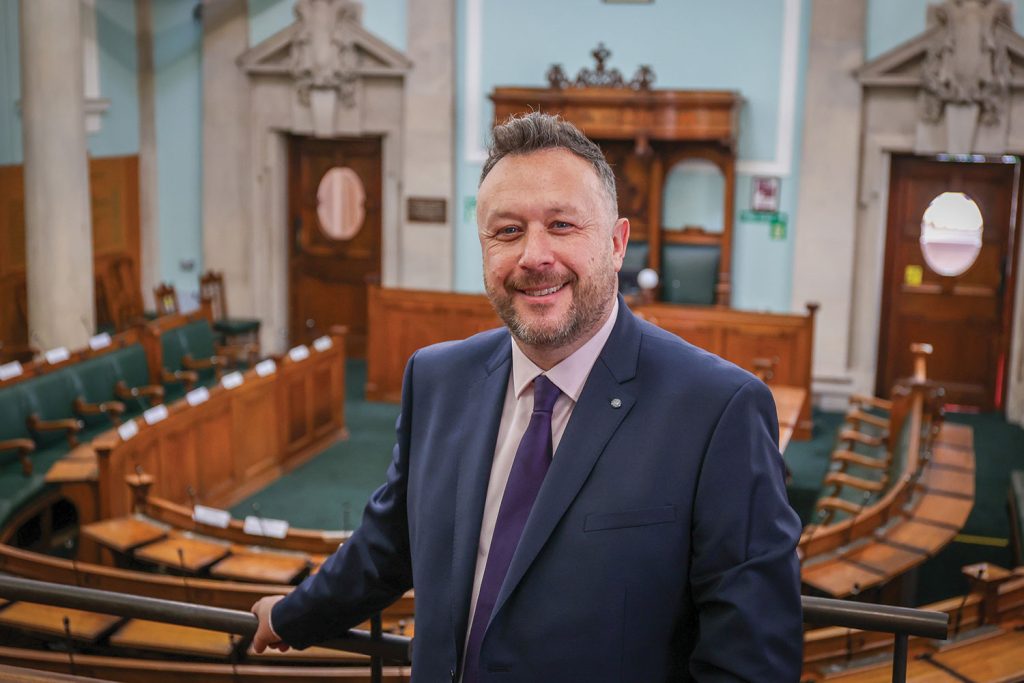Councils are key to combined authorities
Since the publication of the English Devolution White Paper in December, the LGA has been working at pace to respond to the opportunities and risks it presents, and to support our member councils as they do the same.
You can read more about our support offer for councils and regions embarking on devolution and local government reorganisation in the panel below.
Our position is clear: we want every council in England to have the ability to secure devolution that works for them, their local economies and their residents.
The devolution of powers and resources can play a huge role in promoting inclusive economic growth, creating jobs and improving public services. In a very centralised country, moving funding and power from Whitehall to local leaders is needed.
Much emphasis has been placed on the leadership of mayors, but crucial to the success of established combined authorities – and future ‘strategic’ authorities – is the local leadership provided by their constituent councils.
Below, we hear from leaders whose councils are members of the West Midlands Combined Authority (WMCA) about their roles in decision-making and delivery, the pros (and cons) of being part of a combined authority, and what difference it has made locally to residents.
‘Strength in numbers’

Councillor Garry Perry (Con) is Leader of Walsall Council
Being a member of the West Midlands Combined Authority puts us on a platform of positive economic change.
As a collective voice, we can put the region firmly on the map and we’re ambitious in terms of what we can achieve by working together.
We’re reaping some rewards of this joint work in Walsall. Currently, we’re in the middle of a £1.5 billion regeneration programme that will transform our town for the better, and create 4,000 new jobs and build more than 1,000 new homes.
The setup isn’t perfect. For me, it’s about ensuring that all seven members of the authority are seen and treated as equals, on a level-playing field – nobody wants to be the poor relation.
There can be complex, bureaucratic processes to tackle when it comes to different funding opportunities, which, in my view, need to be streamlined if we want to influence central government effectively.
I will always approach everything with a Walsall-first mindset, with people and place at the core.
But I’m not naïve enough to believe that some issues we face in Walsall are problems we face alone, and, with that, there is great strength in numbers.
‘A focus on devolution’

Councillor Stephen Simkins (Lab) is Leader of City of Wolverhampton Council
The WMCA is an extension of the regional metropolitan authorities that founded it. It focuses on moving resources and control from Westminster to the West Midlands to benefit local people. Mayor Richard Parker’s latest devolution deal can help deliver that.
A big advantage of the WMCA is improving transport and infrastructure, making it easier to access jobs, cut travel times and support employers. Our £150 million Wolverhampton Interchange – bringing bus, rail and metro into one commuter hub – is a great example of this.
The WMCA is tackling skills and employment, acting as a catalyst for regional collaboration and leading plans for a ‘targeted to need’ system. Support from the combined authority is also helping in financially challenging times, with council budgets already overstretched.
But more needs to be done. We need to get slicker with housing and land regeneration, especially given the Government’s target to build 1.5 million homes. We must unlock regional funding to deliver key local housing schemes. We have a ‘brownfield first’ commitment and numerous sites raring to go, but need regional support through viability gap funding.
We are stronger together and, with shared priorities, can bring positive change.
Support for reorganisation
The LGA has a strong track record of supporting councils to address specific challenges at all stages of devolution and local government reorganisation (LGR).
During this period in which councils are developing their business cases, we will be sensitive to different views when considering what support we can provide.
Where all authorities in an area proposed for reorganisation or devolution agree that they would like to receive support, we will discuss with them a package targeted to their needs. The LGA’s regional teams lead on this improvement offer (see moredetails.uk/4iJkw3F) and will continue to revise it based on feedback, adjusting it to be appropriate for individual councils or groups of councils.
Where there is agreement across all councils potentially affected, our offer includes:
- facilitation of discussions between authorities to inform the development of proposals
- ‘top team’ workshops for senior political and managerial leaders, to develop a shared vision and approach to plans for change
- ‘critical friend’ challenge and support, including brokering ‘buddy’ and mentoring arrangements for senior political and managerial leaders
- bespoke support to plan for governance arrangements in new authorities.
Our offer also includes:
- the LG Inform+ tool, mapping demographic data to the new geographic footprint to support service and financial modelling and planning
- HR and employment law advice (for example, on TUPE-related issues)
- bespoke support on financial planning and the technical finance implications of LGR.
Our universal offers are adjusted to be relevant to local context and the changing local government context.
For example, corporate or finance peer challenges can help identify issues that should be considered and addressed in preparing for LGR in relation to leadership, governance, finance and capacity, and to focus on readiness for LGR.
We have Leadership Essentials programmes specifically on devolution and LGR, and with content adjusted where appropriate to be relevant to that context; plus action learning sets and development programmes for officers leading transformation planning and programme management.
- For more information on the support outlined here, and additional support available from the LGA, please visit our devolution and local government reorganisation hub.